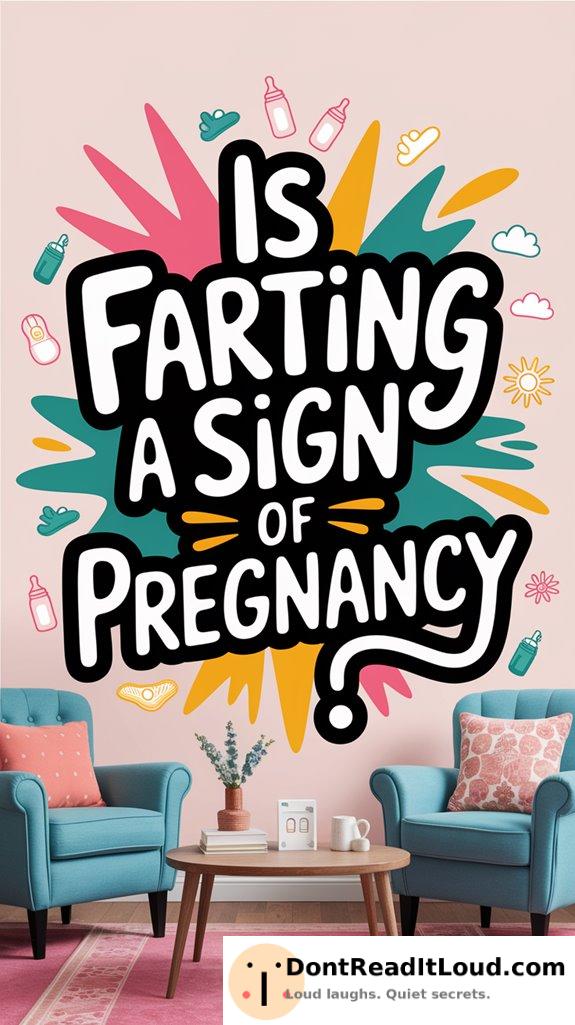
Increased gas can be an early indicator of pregnancy. Hormonal changes, especially higher progesterone and estrogen, slow digestion and cause more gassiness and bloating. Muscles in the digestive tract relax, making food stay in the intestines longer and creating more gas. Bloating, cramps, and constipation are also common at this stage. Curious about ways to ease these digestive changes during pregnancy?

Could farting be an early sign of pregnancy? Increased gas and bloating can actually be among the first indicators. You might suddenly notice more gassiness than usual, which could make you wonder if you’re pregnant. These symptoms are mainly caused by hormonal changes and shifts in digestion, both common in early pregnancy. Rising levels of progesterone and estrogen play a significant role.
During pregnancy, your body experiences major hormonal shifts. Progesterone, which rises sharply, relaxes muscles throughout your body, including those in your digestive tract. This muscle relaxation slows digestion, making it easier for gas to build up and harder to keep it in. Estrogen, which also increases, can cause your body to retain more fluid and gas, leading to bloating and discomfort.
Digestive changes can make these symptoms more noticeable. With slower digestion, food stays in your intestines longer, allowing more time for gas to form. This is why symptoms like burping, bloating, and increased flatulence may show up early in pregnancy.
As your pregnancy advances, physical changes contribute as well. Your growing uterus puts pressure on your abdomen, further slowing digestion and leading to more gas buildup. This added pressure can also cause constipation and make heartburn more common as stomach acid escapes more easily.
There are ways to manage these symptoms. Eating smaller, more frequent meals and chewing food well can help. Drinking plenty of water supports digestion and helps prevent constipation, while regular activity keeps your digestive system moving. Keeping track of which foods trigger your symptoms—like beans, broccoli, or fizzy drinks—can also provide relief.
Gas pain can range from mild to severe and may affect your abdomen, back, or chest. Bloating and cramps often come along with excess gas, and constipation is also common. Many pregnant people experience heartburn due to both hormonal changes and increased abdominal pressure. If you already have digestive issues like IBS, pregnancy may cause these symptoms to become more intense.
Conclusion
If you’re wondering whether frequent farting could mean you’re pregnant, it’s important to know it’s not a definitive sign. While hormonal changes and digestive shifts during pregnancy can cause increased gas, farting alone can’t confirm pregnancy. Look for other symptoms such as a missed period, nausea, or fatigue, and consider taking a pregnancy test for answers. Always ask a healthcare professional for advice that fits your situation. Don’t rely just on gas—be sure to check for all possible signs.



